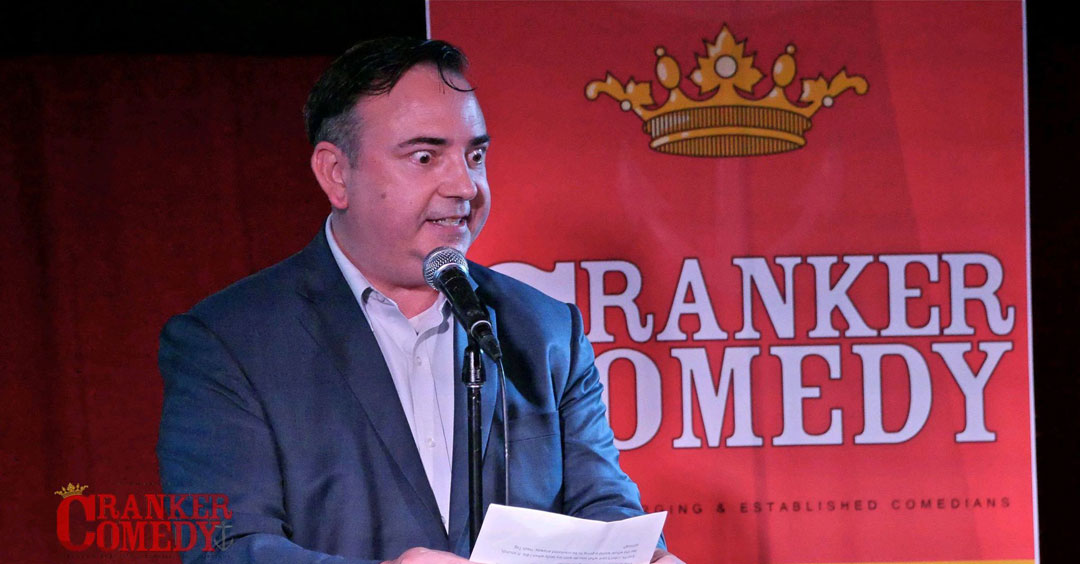
What is this valuable damaging lost art of reviewing?
Or, should I be asking, how do we solve a problem like reviewers?
Well, here’s something interesting. I’ve been reviewing for two decades and aim to do a fair job, writing with the subject’s audience in mind. Many performers end up using my reviews as part of their promotional material. Take a close look at the Adelaide Fringe Guide and where you see “The Adelaide Show” referenced, that will typically be my review.
That said, Lindsay Webb and Kel Balnaves (I’ve reviewed Kel), made some good points on the Radio Adelaide Adelaide Comedy Podcast explaining why performers should focus on their game and NOT read their reviews. I’ve heard other performers say the same thing.
But, but, I’m a performer AND a reviewer
But here’s the crossroads I’m at.
Firstly, I am now on the journey of being a stand up comedian myself. I competed in a South Australian heat of the national RAW Comedy competition, and I have an Adelaide Fringe show about to launch, called 2 Cats On A Hot Fringe Roof. Tickets via FringeTix.
How will I deal with reviewers? Good question. I probably won’t read them.
However, to help people understand the dynamic of “being reviewed”, I am going to REVIEW every night’s audience that comes to our show.
Yes, that’s right, I’m doing Reverse Reviews in our show at the Historian Hotel.
When audience members wake up the next morning, they’ll be able to read their group’s review from the night before (at The Adelaide Show reviews page), see how many stars they got, and look for any particular comments I might have made about them.
My rationale is that live theatre/live comedy is a two-way process.
If audience members just turn up, plonk themselves down, and expect to be entertained, they will probably be disappointed and be contributing to that disappointment by holding back their energy from the performers and fellow audience members.
And there’s the rub. I want to do these reviews as a gentle, fun catalyst to keep people engaged. And Lindsay and Kel are arguing that the presence of reviewers does NOT keep them on their toes or engaged, at least not in a positive way.
Meanwhile, the Fringe facilitates reviewing and most Fringe Show posters quote reviewers.
Can we save the lost art of reviewing?
The short answer is that each must find their own position.
Each performer must decide whether or not to embrace or ignore reviewers.
However, no matter their choice, they will need to recognise that some audience (or potential audience) members will have been swayed by reviews (positively or negatively), and others will be motivated by their enjoyment of a performance to “spread the word” to their friends; which I think we can call informal reviews.
Ultimately, humans review everything, all the time.
We have evolved to judge quickly. It has kept our species alive but maybe it’s not a perfect tool in the area of reviewing arts performances?
Or maybe, the lost art of reviewing could be saved by reviewers being clear about how they are approaching their review for each show, what audience perspective they are writing from, and what criteria they are using to make their judgements.
I have waxed lyrically about some shows – A Little Bit Extra and Belly Of A Drunken Piano – and been gentle in my less enamoured reviews – Trollbridge and Naked Girls Reading, and in all cases, I try to explain who I’m writing for.
Yes, I’m as flawed as the rest of them but I’m prepared to look ticket buyers and performers in the eye because this reviewer’s heart is a disciple of the stage.
PS Let’s finish by being all vulnerable and sharing one of my longer and weirder sets, The Meme Avenger, School Of Hard Knock Knocks, December 2018.
